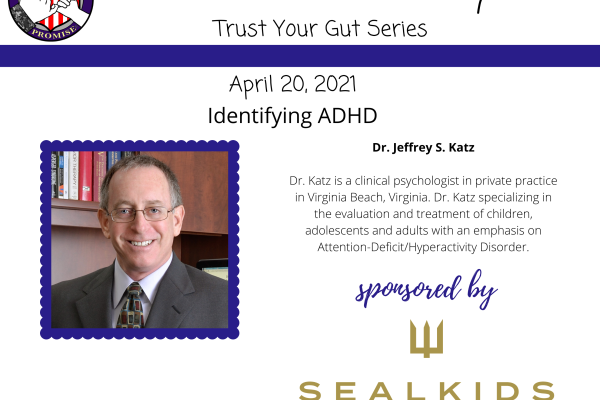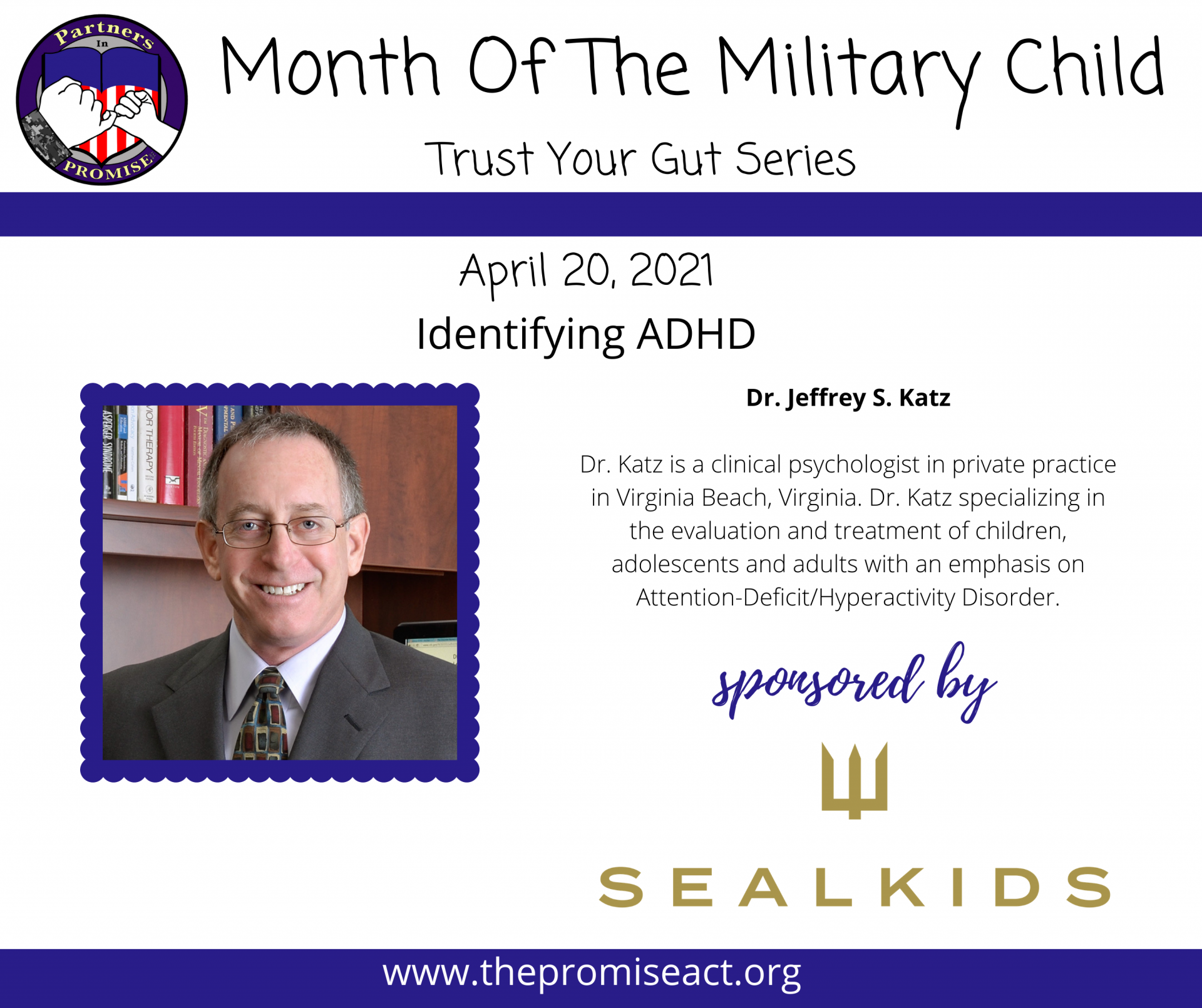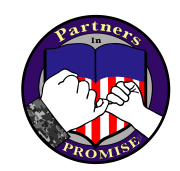
Trust Your Gut – ADHD
| Resources, Trust Your Gut Series
Did you know that kids with ADHD may take longer to settle into a new routine than other kids their age?
Partners in PROMISE Chief Operating Officer, Jennifer Barnhill chats with Dr. Jeffrey Katz about how military families can help recognize ADHD and advocate for their child in the midst of transition.
According to the CDC: ADHD is one of the most common neurodevelopmental disorders of childhood. It is usually first diagnosed in childhood and often lasts into adulthood. Children with ADHD may have trouble paying attention, controlling impulsive behaviors (may act without thinking about what the result will be), or be overly active.

ADHD Tips from Dr. Katz
A diagnosis should involve three places: home, school & community. “That is my first question to parents, ‘what’s your concern? Is there is something different about the quality of their rambunctiousness?”
“Parents have the long view of the child…Teachers have the very short view, they have your child in that classroom, but what their expertise is they have seen many kids so they have a sense at this age or at this age range what may be generally appropriate for that youngster.”
Learn More About ADHD
On Our Blog
Read military mother and author Jillian Johnson’s story about raising a twice exceptional child with ADHD.
Resource Partner: CHADD
CHADD – Children and Adults with ADHD – is a national organization that serves children and adults with ADHD, their parents, educators and professionals. With the help of more than 5,000 members and 120 support groups and affiliates across the country, as well as more than 1,000 volunteers, CHADD reaches out to individuals affected by ADHD, providing support right in their own community with a mission to provide evidence-based information on ADHD to the public; to provide support, information, programs, and services to people affected by ADHD; and to advocate for ADHD-supportive policies in federal and state law.
Signs and Symptoms from the CDC
It is normal for children to have trouble focusing and behaving at one time or another. However, children with ADHD do not just grow out of these behaviors. The symptoms continue, can be severe, and can cause difficulty at school, at home, or with friends.
- daydream a lot
- forget or lose things a lot
- squirm or fidget
- talk too much
- make careless mistakes or take unnecessary risks
- have a hard time resisting temptation
- trouble taking turns
- have difficulty getting along with others
Learn more about signs and symptoms
This video was sponsored by our amazing Resource Partners SEALKIDS. To learn more about the amazing work of SEALKIDS check out our Resource Partner page!





It stood out to me when you mentioned that ADHD can cause problems for kids while they are at school. I would imagine that it would be a good idea to seek out treatment for ADHD as soon as you determine that your child has it. It seems like you would want to make sure that your child is able to focus in school because that will make things much easier.